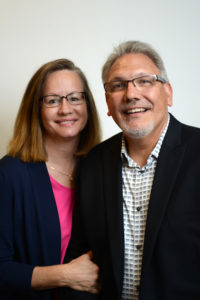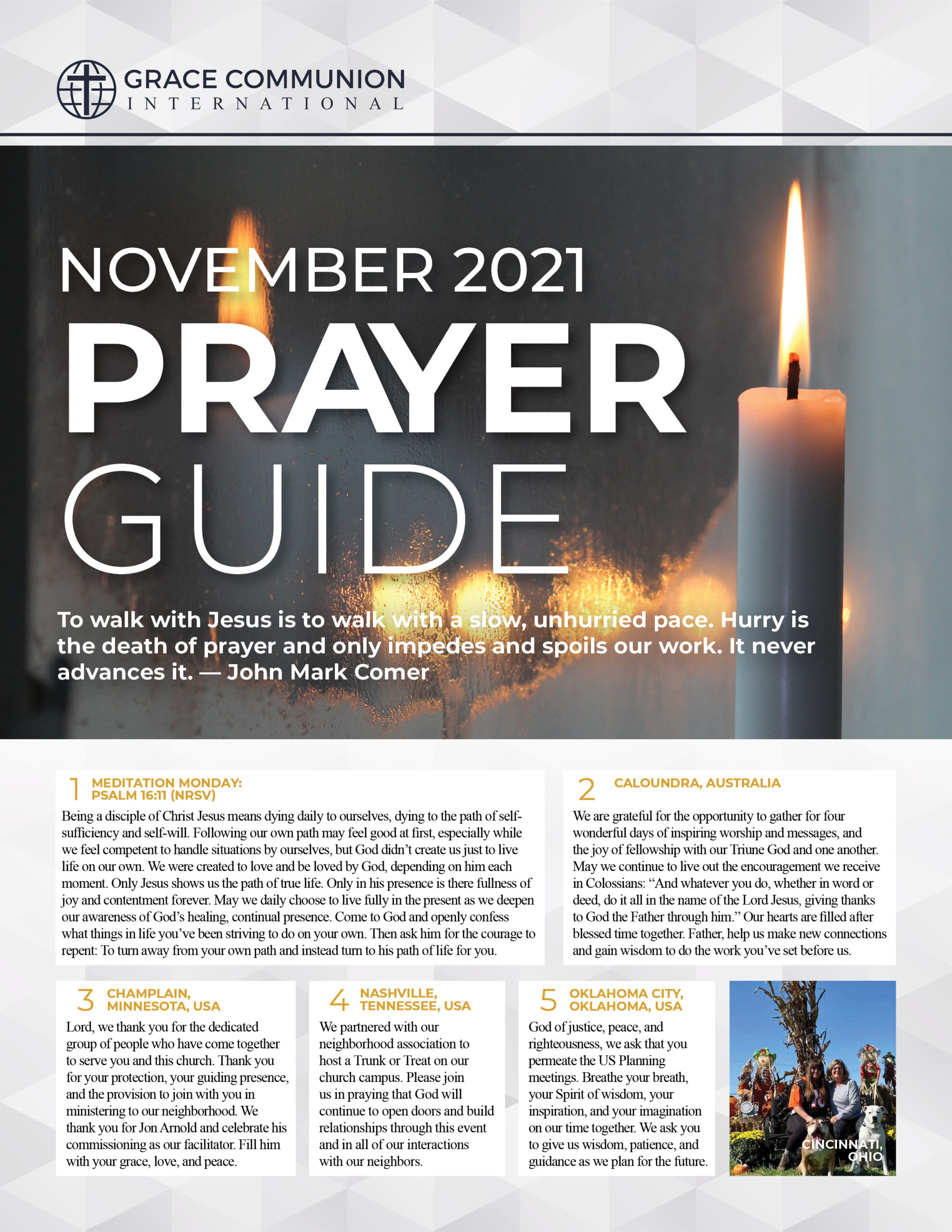
Dear GCI Family and Friends,
Not long ago a pastor told me he gets questioned by congregants who ask, “Why don’t you focus more on sin in the RCL sermons? We seem to be soft on sin.” His response was to put himself into the mix by saying he was just like the apostle Paul in that he was a chief sinner and was completely dependent on the mercy and grace of Jesus. He explained to me that he’d rather be known as strong on grace and if that meant being soft on sin, he was okay with that.
I receive similar questions from time to time in emails and letters sent to the Home Office as it relates to certain human behaviors and lifestyles in society around us.
There is a lot I can say in response to this:
- Most people are already aware of their shortcomings and failures; they don’t come to church to be reminded of their sin, but to be reminded of the hope they have in Jesus.
- Jesus said he did not come to condemn, and I don’t believe it is our job to make people feel condemned.
- Jesus’ message was pointing us to our relationship with God, not our relationship with sin.
- Our calling (commission) is to point to Jesus and his message of salvation, to teach people to obey Jesus’ commandment to love as he loved. It is his love that overcomes a multitude of sins.
- Didn’t Jesus say he came to steer us away from sin and its condemnation, and point us to God’s grace and mercy?
- Isn’t it ultimately the transforming work of the Holy Spirit to convict humanity about sin and righteousness? As Christ’s representatives we participate with the work of the Spirit.
Granted, some will raise some arguments over these statements, but let me suggest that before we argue, we look at a few key passages of Scripture. In particular, let’s look at 1 John 3:4, and then at John 16:9.
An oft-quoted passage is found in John’s letter.
Everyone who commits sin is guilty of lawlessness; sin is lawlessness. (1 John 3:4 NRSV)
But what is the context here? The context is God’s love. Let’s read a few more verses:
See what love the Father has given us, that we should be called children of God; and that is what we are. The reason the world does not know us is that it did not know him. Beloved, we are God’s children now; what we will be has not yet been revealed. What we do know is this: when he is revealed, we will be like him, for we will see him as he is. And all who have this hope in him purify themselves, just as he is pure. Everyone who commits sin is guilty of lawlessness; sin is lawlessness. You know that he was revealed to take away sins, and in him there is no sin. (1 John 3:1-6 NRSV)
Notice a few important things. First, John points out that we are the children of God. And the world does not know us because it does not know him. The focus here is on Jesus and our true identity as his beloved. John’s primary theme isn’t sin—he is writing about our identity in Christ. Then John reminds us that those who know him are purified in him. All this comes before the oft-quoted verse about sin. Then John reminds us further that Jesus “was revealed to take away sins, and in him there is no sin.” Should we focus on Jesus, or focus on sin? It’s an important distinction. It is within the abiding relationship with Jesus that we grow in purity and Christlikeness. If we fall into the trap of isolating our weaknesses and sinful behaviors, then try to deal with them out of our personal strength and willpower, we will be on a merry-go-round of frustration. Also, we are throwing ourselves back on ourselves attempting to somehow become worthy and acceptable before a holy God, when it is only Jesus who makes us worthy and acceptable. Unfortunately, the lop-sided focus on sin that we see in much of Christianity is a distraction from who Jesus is.
Let’s go further and ask an important question: If we focus on verse 4, what is the sin John is referring to? Again, in the context of our identity, wouldn’t sin be not acknowledging our identity? And then living out of that identity?
Wait a minute, Greg, another translation says, “sin is the transgression of the law,” implying we should focus on the law. What law?
Jesus made it clear in his discussion with a “teacher of the law” (Mark 12:28-34) that the law is to love God and love each other. The law Jesus refers to also points to who God is and who we are in relation to God and to each other. Sin, then, is believing the lies about who God is and who we are in Christ. Again, it comes down to identity—the point John was making in his letter.
To go further, let’s go to other words that John shared in his Gospel as he describes the Holy Spirit to his disciples:
And when he comes he will prove the world wrong about sin and righteousness and judgement: about sin, because they do not believe in me; about righteousness, because I am going to the Father and you will see me no longer, and about judgement, because the ruler of this world has been condemned. (John 16:8-11 NRSV)
Notice a few things here. John is sharing Jesus’ message with his disciples about the Holy Spirit and the relationship between the Holy Spirit and us. Jesus said the Holy Spirit comes to prove that we have been wrong about sin, righteousness and judgment about sin. Why? Because of a lack of belief in Jesus—who he is. We could easily include a lack of belief in what Jesus did and what he is doing.
I love how Francois du Toit translates the original language in this verse and his commentary afterwards.
In this capacity of close companionship with you, Holy Spirit comes to convince the world concerning sin, righteousness and judgment: Holy Spirit in you will persuade them concerning their sin, which boils down to a bankrupt, distorted identity due to their indifference to me. (John 16:8-9 Mirror Study Bible)
Notice the emphasis on identity. In GCI, we believe one of the most important questions to ask is “Who is Jesus,” followed by the question, “Who am I in Jesus?” I won’t go into all the different Greek and Hebrew words here, but I believe Francois got it correct when he says this in the commentary on this verse:
“Sin is to live out of context with the blueprint of one’s design; to behave out of tune with God’s original harmony.”
To sin is to live outside of the truth of who God created us to be. When we don’t know who Jesus is, and we don’t know who we are in Jesus, we live outside of the truth of who we are. It is expressed in our lack of love for God and for each other. What is the solution? To come to know Christ, to believe in him and to believe who we are in him. It is to know our true identity, then to embrace it.
Our sermons focus on our Savior, not on enumerating and dissecting sins. Our greatest desire is to know Christ and to help others know him. We focus on his identity and our identity in him. This is what changes lives. When we know God, his love compels us to love others. When we focus on love, we cannot focus on sin.
Besides, as Jesus tells us in the above passage, the father of lies and sin has already been condemned. I’d much rather preach on Jesus and his love than on the lies the enemy wants us to believe, which leads to lawlessness and condemnation. We preach a message of hope. That message comes from knowing and loving Jesus and knowing and loving those he loves.
Preaching the good news,
Greg Williams






